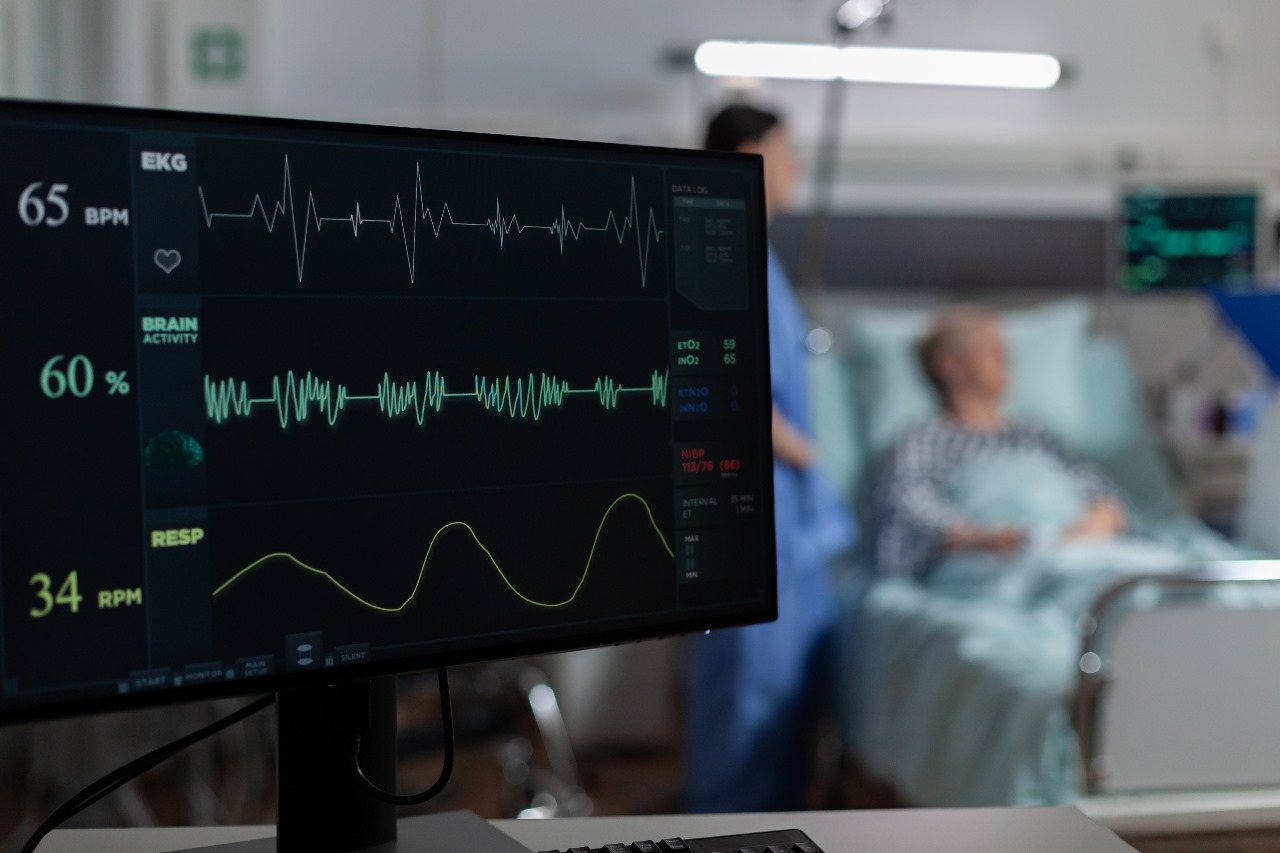What Are the Duties of a Cardiac Sonographer?

Cardiac sonographers are healthcare specialists who conduct diagnostic imaging tests on patient’s hearts and vascular systems. They collect data on heart function and blood flow, which aids cardiologists in delivering optimal care for patients with heart and blood vessel conditions. Understanding the role of a cardiac sonographer can help you determine if this career path is suitable for you.
In this blog, we will explore the responsibilities, skills required in a cardiac sonographer jobs and help you determine if this career path is suitable for you.
The Role of a Cardiac Sonographer
Cardiac sonographers use advanced imaging technologies to assist physicians in diagnosing and treating patients with heart conditions. They play a critical role by providing detailed information about a patient's heart function and vascular system, which is essential for accurate diagnosis and effective treatment. By mastering these skills, cardiac sonographers ensure that patients with heart conditions receive the best possible care from cardiologists, contributing significantly to the overall healthcare process. Understanding what a cardiac sonographer does can help you decide if this role is right for you.
Responsibilities of a Cardiac Sonographer
-
Performing tests such as transthoracic and transesophageal echocardiograms to evaluate heart and vascular functions.
-
Assessing medical images and selecting the most relevant pictures for review by other healthcare professionals.
-
Explaining medical imaging procedures to patients in simple terms and addressing their questions.
-
Operating and maintaining echocardiogram and ultrasound equipment, ensuring proper setup, use, and storage.
-
Scheduling patient appointments and coordinating between patients and physicians.
-
Writing detailed reports and recommendations based on test results.
-
Handling referrals from other healthcare providers.
-
Supporting diagnosis by reviewing images, highlighting abnormalities, and discussing findings with other medical professionals.
-
Selecting and positioning the necessary equipment to capture clear images.
-
Ensuring patient comfort and proper positioning during imaging procedures.
Essential Skills for a Cardiac Sonographer
Cardiac sonographers utilize vital skills to effectively perform their roles in cardiac sonographer jobs.
-
Technical Sonography Skills:Proficiency in operating and maintaining sonography equipment is crucial for accurate imaging.
-
Communication: Strong communication skills are vital for explaining imaging procedures to patients and coordinating with healthcare professionals such as cardiologists and EKG technicians.
-
Detail Orientation: Attention to detail ensures precise diagnostic results and adherence to instructions throughout the imaging process.
-
Writing Skills: Clear and accurate writing is essential for creating detailed reports and recommendations used by other healthcare providers.
-
Time Management: Effective time management helps handle busy schedules, coordinate appointments, manage tasks, and write reports efficiently.
-
Teamwork: Collaboration with other professionals in echocardiographic laboratories and hospitals is important for effective patient care and diagnosis.
-
Physical Stamina: The role requires long periods on foot and the ability to lift and move patients, demanding physical stamina and strength.
How to Become a Cardiac Sonographer
To embark on a career as a cardiac sonographer, follow these steps:
-
Obtain Academic Qualifications: Begin with high school courses in math, English, chemistry, and biology. Pursue an undergraduate degree in fields such as applied science, medical imaging, radiotherapy, medical radiation science, biomedical science, or nuclear medicine technology. Advance your education with a postgraduate qualification like a Graduate Diploma in Medical Ultrasound or a Master of Medical Ultrasound. Registration with the Australian Sonographer Accreditation Registry may be necessary, and you should engage in continuing professional development to maintain your registration and boost career opportunities.
-
Gain Experience: Practical experience is essential. Look for degree programs offering clinical rotations to gain hands-on training. During these rotations, you'll perform medical imaging tests, interact with patients, and collaborate with healthcare professionals. On-the-job training from employers can also help you become familiar with new equipment and procedures.
-
Apply for Jobs: Once you have the required qualifications and experience, start applying for cardiac sonographer positions. Update your resume to highlight your educational background, experience, and skills. Tailor your resume and cover letter to meet the specific requirements of different employers to improve your chances of securing a position.
Work Environment for Cardiac Sonographers
Cardiac sonographers typically work full-time during weekdays, though their schedules may include weekends, holidays, and evenings depending on their employer. They are employed in various settings such as public and private hospitals, medical clinics, doctors' offices, and diagnostic imaging centers.
In fast-paced hospital settings, schedules can be unpredictable due to varying workloads, whereas clinical settings and imaging centers usually have more consistent hours with scheduled patient appointments.
The role involves an active environment where cardiac sonographers conduct echocardiogram tests, record results, and collaborate with other healthcare professionals, often requiring movement between different locations within the facility.
Conclusion
Cardiac sonographer jobs require working in diverse settings with varying schedules, from fast-paced hospitals to regular clinical environments. Their role demands flexibility, active engagement, and collaboration with healthcare professionals. Understanding the work environment can help you determine if this dynamic and impactful career aligns with your interests and goals.
Thank you
Address: 18th Floor, 1230 Peachtree Rd NE, Atlanta, GA 30309, United States
Email: contactus@orionallied.com
Phone Number: +18007730686
Quick Links :
Sterile Processing Technician Jobs
